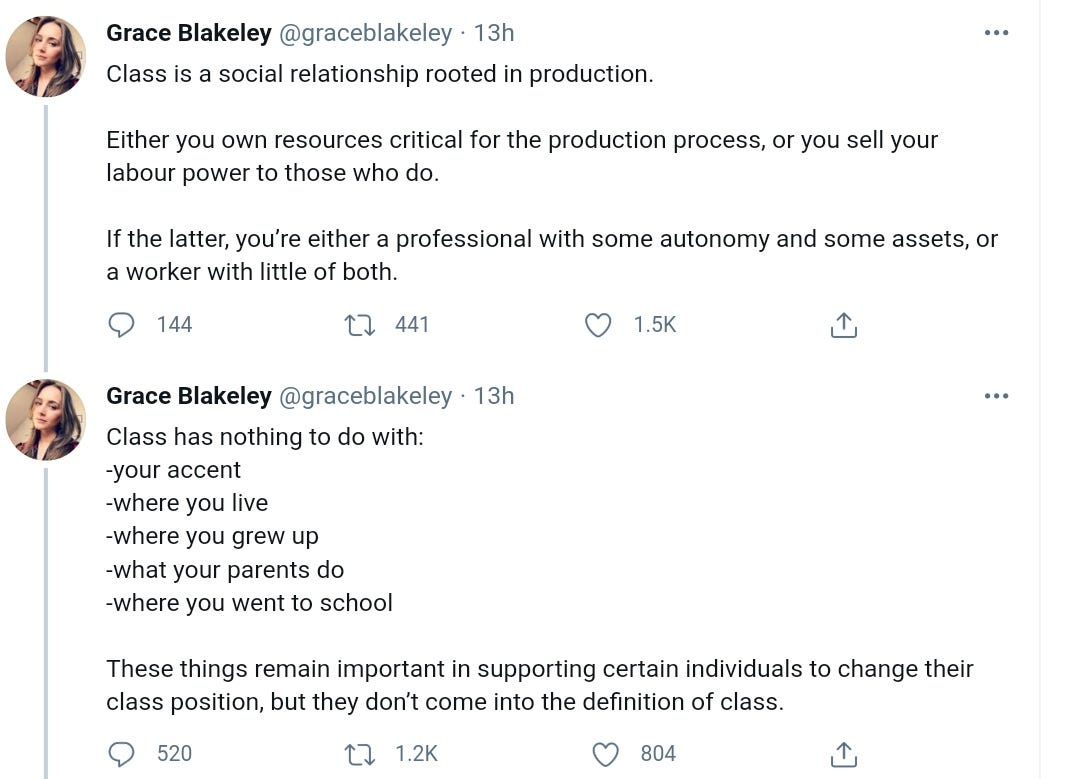A Working Class Hero Is Something To Be
If you want to be a hero, well, just follow me.
Ten years ago I went on a skiing holiday to Switzerland with my dad. We stayed in a chalet with other guests we hadn't met before. One of them was a middle aged man named Frank. Frank was from the North East, and worked as a miner until the pits closed. For the intervening 25 years he'd worked as an engineer on oil rigs, becoming rich to the point he owned a big house in the countryside and was holidaying in Zermatt with poshos like me.
You can't be a lifelong Labour voter unless you've lived long enough, but Frank was a lifelong Labour voter. He hated Thatcher and the Tories, and loved talking about politics. As a teenage contrarian I teased him about it, how could he complain when it all worked out so well for him? But Frank wasn't to be budged. He was a Labour Man through and through, and proud of his working class identity.
I'd forgotten about Frank until the Hartlepool by-election. All London's worst journalists got on the train for a pleb safari, vox popping the workingest classiest voters they could find, who swung the seat to the Conservative party. I wonder if they found Frank, and I wonder if he still votes Labour.
Was Frank working class? Well sort of. He grew up in a low income family and did a quintessentially working class job. He then became a high earner in a job with mixed class connotations. He was asset rich. He had a northern accent and his vocabulary wasn't U or non-U. His cultural identity was working class, but his holidays and consumption were fancy. His name wasn't really Frank, but this story would sound very different if I called him Tarquin.
Thirty years ago someone with a working class job probably had a working class accent, working class cultural references and relatively little asset wealth. But the correlation between these facets is breaking down over time. Some of that is simple social mobility like Frank, but there's other factors as well. The main one is housing wealth, rising prices have dwarfed income growth. The gains are concentrated in older people who were able to buy property cheap. These are the fabled lifelong Labour voters turned Tory. Working class cultural references, lowish fixed income supplemented by imputed rent and relatively high asset wealth. They are made more comfortable by low levels of wealth taxation, triple locked pensions and public services funded by high income taxation that doesn't hit them.
At the other end of the spectrum we have Grace Blakeley. She gives us a very traditional Marxist definition of class, it is the relationship to the means of production. Owners versus workers.
For Blakeley it doesn't matter whether you went to private school or what your parents do. This is awfully convenient for privately educated journalists cosplaying as Bolsheviks. But it contains within it a grain of truth about proletarianised urban graduates. They may have higher incomes than our retired red wall voters, but this is eaten away in rent and graduate taxes. They have little prospect of attaining property wealth without inheritance from their parents, and if they're unlucky that might all go on care home fees anyway.
This scrambling of the class system plays havoc with the tiny minds of journalists. Economics is really hard so they want to focus on the cultural. But they're left with cultural references thirty years out of date, from when everything made more sense. Flat caps and donkey jackets versus fancy coffees and avocados. Few people under the age of fifty know the script required to access the media's outdated cultural understanding of class, so don't count as working class for the purpose of a vox pop.
Now this may all seem like a frivolous language game, but it has political consequences. It's agreed across the political spectrum that working class people deserve government support. So while it's by definition an underprivileged position, claiming that label is a powerful argument for a larger share of resources. These aren't neutral descriptions, they're a political choice. Geographical and cultural definitions of class favour spending and tax cuts for retired homeowners in the north. Blakeley's economic materialism is advocating for young people in cities. My interests are with the commies, and my first demand is an income tax cut.
Alternatively we could try helping those who actually lack resources, maybe through some sort of properly funded welfare system, but that's crazy talk.



